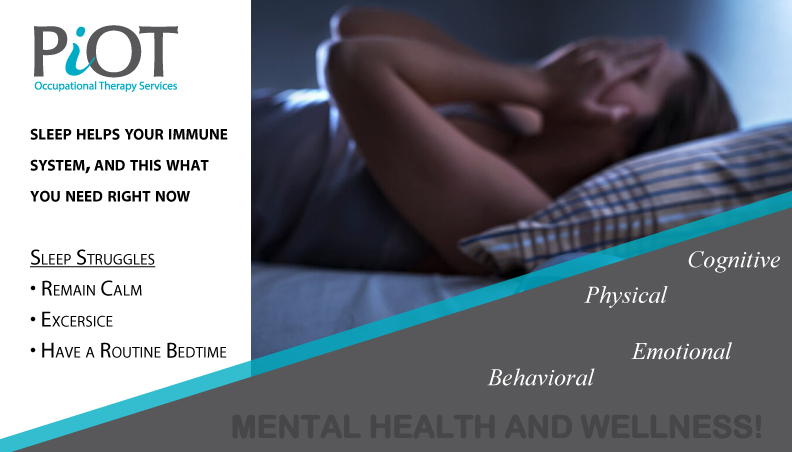
03 May It’s 2 A.M and I Can’t Sleep
Decreased duration of sleep can lead to health consequences, as eventually it can compromise your immune system, making you more susceptible to illnesses. Lack of proper sleep has also been correlated to a significantly higher risk of traffic accidents. The cognitive effect of driving while sleep deprived is similar to driving while impaired.
The latest pandemic stay-at-home orders have added further restrictions and disruptions to the usual routines of our daily lives. We seem to be doing less, yet we feel more tired. However, in spite of feeling tired, we may be experiencing sleeplessness. Because we cannot follow our usual routines and are limited in our choices of activities, we become bored and look for distractions to pull us out of the present moment. Too tired to do much else, we usually do something mindless, like scrolling on the Internet or watching TV. To our surprise, we suddenly realize that hours have passed, and it is way past the time we should have been asleep. This can lead to a vicious cycle, as we delay our bedtimes and wake up exhausted the following day.
An article written by Emma Jones in Healthing.ca suggests a technique called Mental Contrasting with Implementation Intentions (MCII) to try to break the sleeplessness cycle and get back on track. This technique includes goal setting and envisioning yourself succeeding in that goal. Here is the link to learn more about it: https://www.healthing.ca/wellness/sleep/why-cant-i-sleep-even-though-im-tired?utm_source=Sailthru&utm_medium=email&utm_campaign=Healthing%20CovidLife%20Newsletter%202021-04-15&utm_term=Healthing It would be interesting to know how many readers are reading this blog when they should be trying to sleep.

